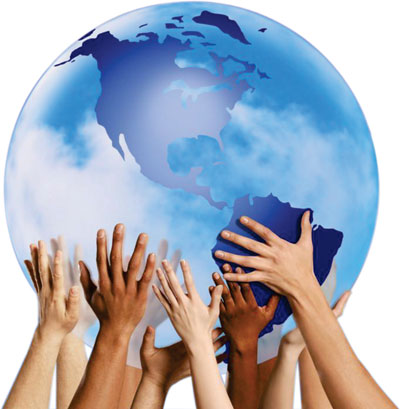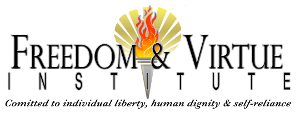The spread of COVID-19 continues to dominate the headlines as governments, businesses, and individuals grapple with how best to combat the pandemic. Face masks, physical distancing, and gathering limits are everywhere. In this environment, it’s easy to begin forming the mindset that the dominant role played by other people in our lives is that of threat to our own health and survival. We should resist the temptation to adopt this view, because it isn’t true.
The extraordinary health crisis has affected every aspect of our daily lives. Dr. Anthony Fauci, director of the National Institute of Allergy and Infectious Diseases and one of the most recognizable public figures during this episode, has said that the pandemic “is going to be imprinted on the personality of our nation for a very long time.” What will the character of this imprint be? We should be attentive not only to the way that we react physically to the threat of infection but also how we react psychologically and spiritually.
A friend complained recently that, when he ventured out, the social distancing practiced by fellow walkers and shoppers made it feel as though everyone perceived everyone else chiefly as a potential source of infection. In a pandemic, this is to some extent inevitable and understandable. Leaving aside legitimate questions about whether all current practices are prudent or necessary, even widely accepted and reasonable efforts to prevent the spread of disease and to protect vulnerable people can feel strange, off-putting, even offensive.

Yet we should be careful not to let the unusual practical exigencies of the current crisis negatively influence our attitude toward our neighbors. Everyone we meet in the park, at the office, or at the store, whether infected or not, is just as much a child of God with inherent dignity as he or she was before. Every person remains laden with potential for cultivating talents, creating value, and contributing to society. The Christian worldview, Pope Francis affirmed in his encyclical Laudato Si’, “inculcates esteem for each person and respect for others.” It is, moreover, “openness to others, each of whom is a ‘thou’ capable of knowing, loving and entering into dialogue,” that “remains the source of our nobility as human persons.”
There is another, contradictory perspective. “Hell is other people,” the French existentialist Jean-Paul Sartre famously wrote. Let’s not take even a step down the perilous path that ends in that destructive conclusion.
In the late decades of the last century, the economist Julian Simon gained notoriety for arguing against the claims of those who viewed human population increase as an impending catastrophe. “Adding more people causes problems,” he wrote, “but people are also the means to solve these problems.” Simon’s predictions concerning the future of humanity and the adequacy of our planet’s natural resources proved far more accurate than those of his opponents. We do well to remember this lesson, even in times of stress and conflict.
Yes, human beings will continue to be vehicles for the transmission of disease. But it’s also human beings who will take care of us at home or hospital, who will discover a vaccine, who will grow, process, transport, and sell the food we need to survive. Our fellow citizens will analyze the benefits and costs in the contemporary reaction to pandemic conditions and formulate more effective, less painful methods to implement the next time a similar challenge confronts us.
Even so, these positive outcomes do not happen automatically. We must foster inherent potential by ensuring certain conditions. People thrive in a climate of freedom, social support, and responsibility. In a genuine crisis, certain restrictions may be necessary, but we should not underestimate the necessity of preserving basic rights and the fundamental connection between actions and consequences. People are naturally problem-solvers, but their natural inclinations can be thwarted by social dysfunction such as an abusive family life, by overweening government regulation, or by a perverse system of incentives that rewards indolence rather than hard work and creativity. Even in the face of a pandemic, it’s possible to apply a “cure worse than the disease” and we must all be wary of that danger.
“People are the means to solve these problems.”
Simon’s Rule
A pandemic is no exception to Simon’s rule. Disease is a problem. Unemployment is a problem. Social isolation is a problem. People are the solution.
About the Author

Kevin Schmiesing is director of research at the Freedom and Virtue Institute and a research associate at the Veritas Center for Ethics in Public Life. He has published many books and articles in the fields of Christian social thought and religious and economic history and has served as executive editor of the Journal of Markets & Morality and the Catholic Social Science Review. He talks about Church history as a regular guest on the EWTN global Catholic radio network. He is a native of Ohio, where he currently resides with his wife and children.


